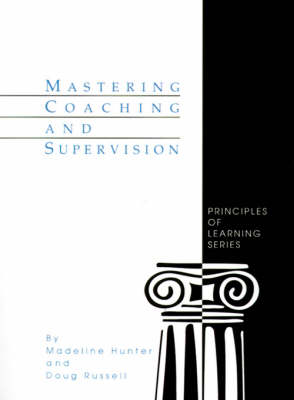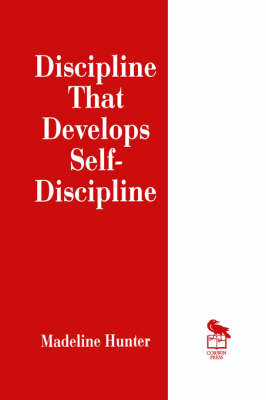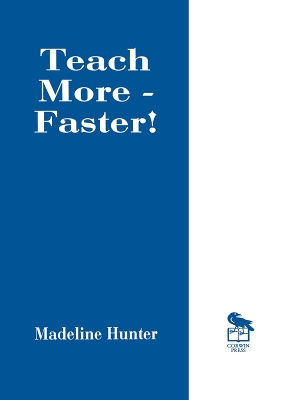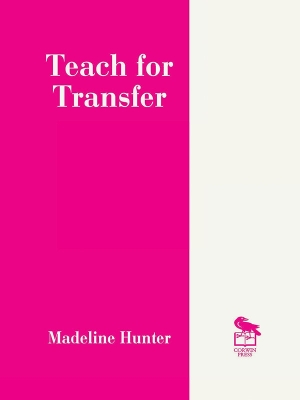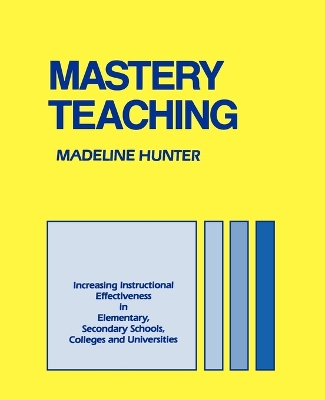Madeline Hunter Collection
11 total works
Madeline Hunter is one the most respected and widely known advocates of professional development for teachers. Her practical and skillfully presented books, now republished for a new generation by Corwin Press, detail the essentials of effective teaching. Issues addressed include: what influences a student's motivation to learn and rate of learning, how students remember what they have learned, and how to achieve student discipline and student self-discipline. Books within the collection include:
- Aide-ing in Education
- Discipline That Develops Self-Discipline
- Improved Instruction
- Improving Your Child's Behavior
- Mastering Coaching and Supervision
- Mastery Teaching: Increasing Instructional Effectiveness in Elementary and Secondary Schools, Colleges, and Universities
- Motivation Theory for Teachers
- Retention Theory for Teachers
- Teach for Transfer
- Teach More-Faster!
